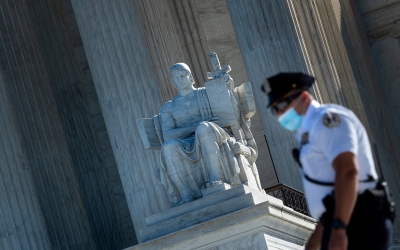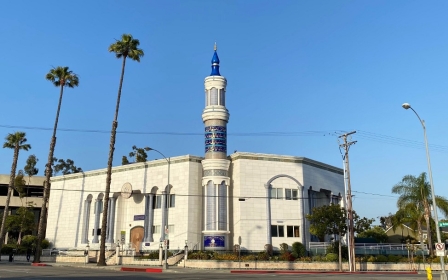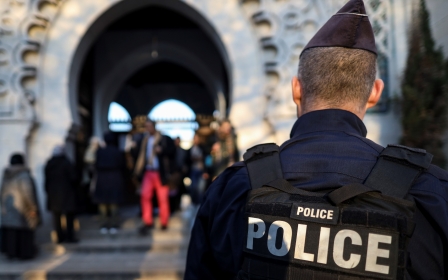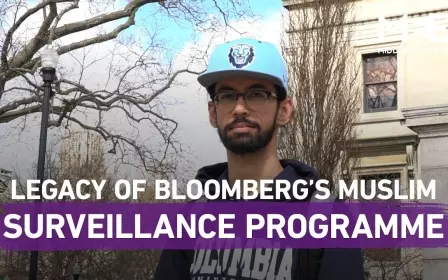US Supreme Court rules Muslims placed on no-fly list can sue for damages
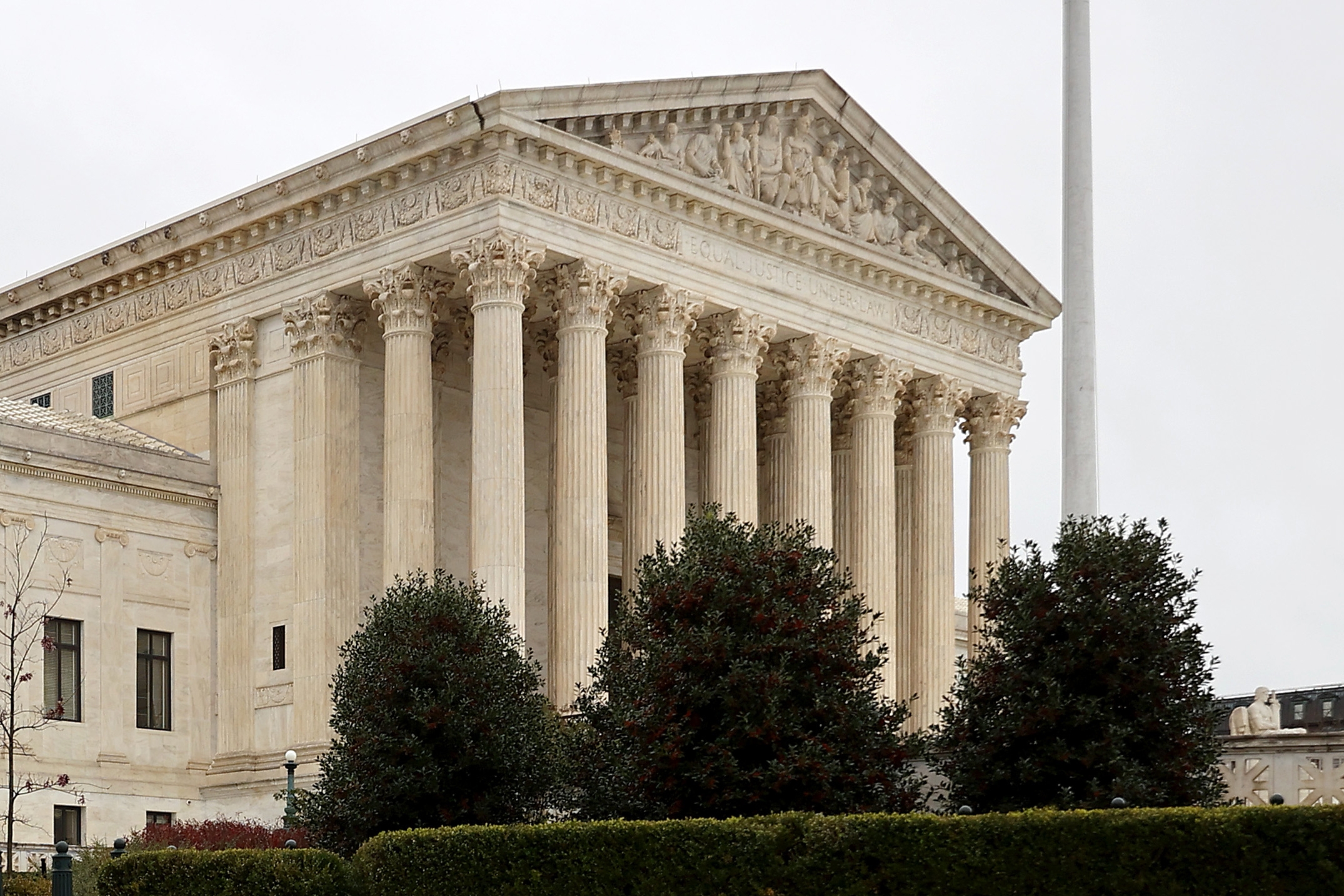
The US Supreme Court on Thursday ruled that Muslim Americans who were placed on the FBI's no-fly list after refusing to spy on their communities are allowed to sue individual FBI agents who allegedly violated their religious freedoms.
In a unanimous decision, the court ruled in favour of lead plaintiff Muhammad Tanvir, a legal permanent New York resident from Pakistan, who refused to spy on his Muslim community and suffered from a travel blacklist as a result.
New MEE newsletter: Jerusalem Dispatch
Sign up to get the latest insights and analysis on Israel-Palestine, alongside Turkey Unpacked and other MEE newsletters
"The question here is whether 'appropriate relief' includes claims for money damages against Government officials in their individual capacities. We hold that it does," the court said in its decision.
"A damages remedy is not just 'appropriate' relief as viewed through the lens of suits against Government employees. It is also the only form of relief that can remedy some RFRA [Religious Freedom Restoration Act] violations," it said.
Tanvir said the decision invoked a "soaring feeling".
"I made my life in this country, so this is important not just for me, but for everybody. I don't want the same thing that the FBI did to me to happen to others."
After refusing the FBI's requests to spy on their Muslim communities, Tanvir, alongside fellow plaintiffs Jameel Algibhah and Naveed Shinwari, found that he was unable to board flights.
The FBI had told the individuals that they would be removed from the no-fly list once they agreed to work for the bureau.
The plaintiffs' lawyers have argued that the only reason they were placed on the list was because of their refusal to work for the FBI and utilise their Muslim identities, and that none of the individuals were targeted for criminal history.
"The Supreme Court today vindicated our clients' courageous stand for their religious freedom as Muslims who would not spy on their own faith community," Ramzi Kassem, professor of law and director of the Clear Clinic at CUNY School of Law, said in a statement.
"The Court's unanimous decision also sends a clear message to FBI agents who should think twice now before abusing the power to put people on the no-fly list," said Kassem, who argued the case before the court.
Victory against government intrusion
The legal battle began in 2013 when the advocacy initiative, Creating Law Enforcement Accountability & Responsibility (Clear), at the City University of New York (CUNY), sued the federal government on behalf of Tanvir.
The Center for Constitutional Rights (CCR) and three other Muslim men on the no-fly list joined the lawsuit soon after.
Prior to the first major hearing in the case, the defendants informed each man that he was no longer on the no-fly list. A district court judge subsequently dismissed the lawsuit.
'The unanimous decision sends a resounding message to the FBI in this case, that accountability matters'
- Diala Shamas, Center for Constitutional Rights staff attorney
A federal appeals court then reinstated the case, which also sought damages for the financial harm and emotional trauma caused by being placed on that list and not being able to travel.
The Supreme Court ruling now paves the way for individuals to sue individual officers for compensation and damages for violating their religious beliefs.
"The unanimous decision sends a resounding message to the FBI in this case, that accountability matters. That when you violate religious rights, you will be sued for damages," Diala Shamas, staff attorney for the CCR, told Middle East Eye.
"Our clients have suffered immeasurably, including being prevented from being with their ailing relatives who are overseas and separation from their spouses," she said.
The plaintiffs' lawyers also noted that the FBI's abusive power, in this case, is just one example of how the US government has infringed upon the rights of the Muslim community through surveillance programmes, its infiltration of religious spaces, and also with the Trump administration's Muslim ban.
"Today's decision is a victory for religious communities against improper government intrusion," Jennifer R Cowan, pro bono counsel at the Debevoise & Plimpton legal firm said in a statement.
"And it is the result of our clients' determination to stand up for their rights. We look forward to continuing this fight in the district court."
Middle East Eye delivers independent and unrivalled coverage and analysis of the Middle East, North Africa and beyond. To learn more about republishing this content and the associated fees, please fill out this form. More about MEE can be found here.


